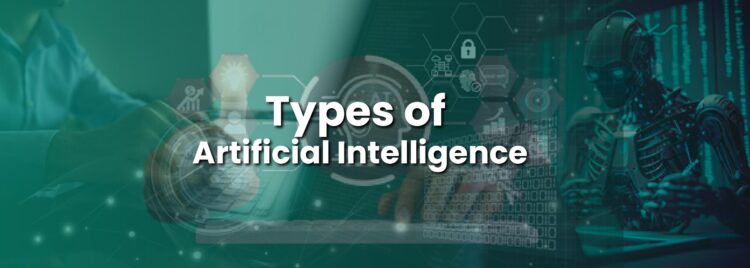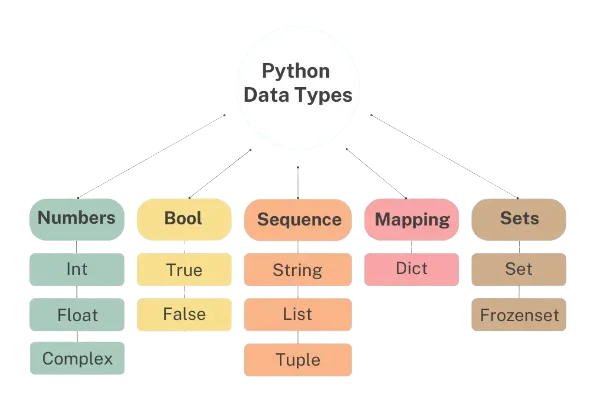Table of Contents
ToggleIntroduction
We know that Artificial Intelligence has dramatically impacted the world’s economy and will continue because we’re aiding its growth by producing immeasurable data. Types of Artificial Intelligence, We can deal with such humungous data thanks to the advancement in Artificial Intelligence Algorithms.
You will understand the various Artificial Intelligence techniques and how they can solve problems. Artificial Intelligence has massive potential advantages. The key for humans will confirm the “rise of the robots” doesn’t get out of control.
Generally, say that Artificial Intelligence can beat human civilization if it falls into the wrong hands. Still, none of the single AI applications made at that scale can beat or enslave humanity.
What Is Artificial Intelligence?
Artificial Intelligence involves using computers to do things that traditionally require human Intelligence. AI can process large amounts of data in ways that humans cannot. The goal for AI is to be able to do things like recognize patterns, make decisions, and judge like humans.
Artificial Intelligence has enabled machines to learn from experience and g to perform human-like tasks. Many vivid examples of Artificial Intelligence you hear about, like Self Driving Cars, Chess, and Playing with Computers, count substantially on Deep learning and Natural Language Processing.
What Is Machine Learning?
Machine learning is an equivalent of artificial Intelligence, broadly characterized as a machine’s capability to the same intelligent human behavior. Artificial intelligence systems perform complicated tasks similar to how humans solve problems.
Machine learning is essential since it gives organizations a view of the latest customer behavior and operational business patterns and supports improving new products. Machine learning has become a major competitive differentiator for many companies.
Types Of Machine Learning
Machine Learning has four basic approaches: supervised learning, unsupervised learning, semi-supervised learning, and reinforcement learning. The algorithm scientists use on the data type they want to predict.
Supervised learning:
In this type of machine learning, data scientist supply algorithms with labeled training data and specify the variables they want the algorithm to judge for correlations. The input/output of the algorithm is defined.
Unsupervised Learning
This type of machine learning requires algorithms that train on unlabeled data. The algorithm inspects data sets, looking for any meaningful attachments. The data algorithms train on, and the predictions or recommendations they output are predetermined.
Semi-supervised learning
This access to machine learning requires a mix of the two primary types. Data scientists may board an algorithm mostly labeled training data, but the model can explore the data independently and develop its understanding of the data set.
Reinforcement learning
Data scientists use reinforcement learning to teach a machine to complete the process for which there are clearly defined rules. The algorithm chooses on its own what steps to take along the way. Reinforcement Learning is the science of decision-making. It is about learning the ideal behavior in an environment to acquire the maximum reward.
Importance of Artificial Intelligence
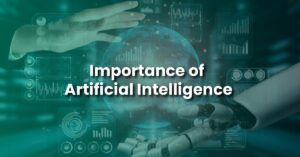
Artificial Intelligence has enabled machines to learn from experience and g to perform human-like tasks. Types of Artificial Intelligence, Many vivid examples of Artificial Intelligence you hear about, like Self Driving Cars, Chess, and Playing with Computers, count substantially on Deep learning and Natural Language Processing. Using these algorithms, computers can be trained to fulfill specific tasks by processing large amounts of data and recognizing patterns in the data.
Click here to learn about data science: data science course in kolkata
Stages Of Artificial Intelligence
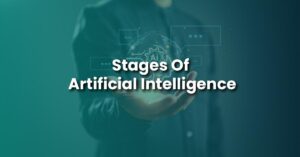
Artificial Intelligence involves using computers to do things that traditionally require human Intelligence. These are some stages along which AI can evolve. Based on capability, there are three types of Artificial Intelligence.
Artificial Narrow Intelligence
Artificial Narrow Intelligence is the types of Artificial intelligence involving machines that can execute only a narrowly decided set of specific tasks. At this stage, the device has no thinking ability and performs pre-defined functions. Artificial Narrow Intelligence is known as weak AI.
Artificial General Intelligence
Artificial General Intelligence is the stage in the evolution of Artificial Intelligence wherein machines can think and make decisions like humans.
However, we will soon be able to create machines as intelligent as humans. Artificial General Intelligence is known as strong AI.
Artificial Super Intelligence
Artificial Super Intelligence is the types of Artificial Intelligence when the ability of computers will surpass human beings. As represented in movies and science fiction books, ASI is currently a hypothetical situation where machines have taken over the world. Super AI is still a theoretical concept of Artificial Intelligence. The development of such systems in real is still world changing task.
Types Of Artificial Intelligence
Artificial Intelligence involves using computers to do things that traditionally require human Intelligence. Based on the functionality of AI-based systems, there are four types of Artificial Intelligence.
Reactive Machines AI
This types of Artificial Intelligence includes machines that operate solely based on the present data, considering only the present situation. Reactive AI machines cannot form inferences from the data to evaluate their future actions. They can perform a narrower range of pre-defined tasks.
A reactive machine is the major types of artificial intelligence that does not store memories or use past familiarities to determine future actions. It works only with present data. Reactive machines are provided with specific tasks and don’t have capabilities beyond those tasks.
Limited Memory AI
This types of Artificial Intelligence can make informed and improved decisions by studying past data from its memory. Such an AI has a short-lived or temporary memory that can store past experiences and evaluate future actions. Limited memory machines can store past familiarity or some data for a short period. These machines can use stored data for a limited period only.
Theory Of Mind AI
The Theory Of Mind AI is a more advanced types of Artificial Intelligence. This category of machines is speculated to play a significant role in psychology. This type of Artificial Intelligence will focus mainly on emotional Intelligence so that human beliefs and thoughts can be better comprehended.
Theory of mind AI represents
an advanced technology class and exists only as a concept. Such AI requires a thorough understanding that the people and things within an environment can alter feelings and behaviors.
Self-aware AI
This types of Artificial Intelligence is far-fetched given the present circumstances. However, in the future, achieving a stage of superintelligence might be possible. These machines will be more innovative than the human mind. Self-Awareness AI does not exist still, and it is a theoretical concept.
These machines will be more intelligent than the human mind. This types of Artificial Intelligence will be able to understand and elicit emotions in those it interacts with and have its own emotions, needs, and beliefs.
Suggested blog: data science course in kerala
Advantages of Artificial Intelligence
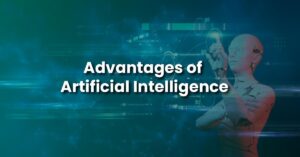
Helping in Repetitive Jobs
We will perform many repetitive tasks like sending a thanks mail, verifying certain documents for errors, etc. Using Artificial Intelligence, we can automate these mundane tasks, remove “boring” tasks for humans, and free them up to be increasingly creative.
Digital Assistance
The digital assistant is also used on many websites to provide users with desired things. Types of Artificial Intelligence, We can chat about what we are looking for. Some chatbots are designed, so it becomes hard to determine whether we’re talking with a chatbot or a human being.
Takes risks instead of Humans
This is one of the most significant advantages of AI. Types of Artificial Intelligence, We can overcome many limitations of humans by developing an AI Robot which can do complex things for us. Let it be going to mars, defusing a bomb, exploring the deepest parts of oceans, or mining for coal and oil, and it can be used effectively in any natural or artificial disaster.
Reduction in Human Error
Artificial Intelligence makes decisions from previously gathered information by applying a particular set of algorithms. Types of Artificial Intelligence, So errors are decreased, and the chance of reaching perfection with greater precision is possible.
Disadvantages of Artificial Intelligence
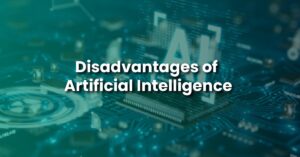
No Emotions
Machines are much better at working logically, but they must maintain the human connection that makes the team. Engines cannot develop a bond with humans, an essential attribute in Team Management.
Making Humans Lazy
AI makes humans lazy through its applications, automating most of the work. Humans are inclined to get addicted to these inventions, which can cause a problem for future generations.
High Costs of Creation
AI is regularly updated. The hardware and software need to improve with time for the latest requirements. Types of Artificial Intelligence, Machines need repairing and maintenance which need high costs. Its creation requires vast costs as they are very complex machines.
Unemployment
AI is replacing most mundane tasks and other work with robots; Types of Artificial Intelligence human interference is becoming less, which will cause a significant problem in employment standards. Every organization wants to displace the minimum qualified separates with AI robots that can do similar work more efficiently.
Conclusion
Artificial Intelligence has massive potential advantages. The key for humans will confirm the “rise of the robots” doesn’t get out of control. Generally, say that Artificial Intelligence can beat human civilization if it falls into the wrong hands. Still, none of the single AI applications made at that scale can beat or enslave humanity.
We might be far from creating machines that can solve all the issues and are self-aware. But, we should focus our efforts on understanding how a machine can train and learn on its own and possess the ability to base decisions on past experiences.
Frequently Asked Questions
What are the 4 types of AI?
- Reactive Machines AI
- Limited Memory AI
- Theory Of Mind AI
- Self-aware AI
What are the 3 types of artificial intelligence?
- Artificial Narrow Intelligence
- Artificial General Intelligence
- Artificial Super Intelligence
What is the most basic type of AI?
Reactive Machines AI
This type of Artificial Intelligence includes machines that operate solely based on the present data, considering only the current situation. Reactive AI machines cannot form inferences from the data to evaluate their future actions. They can perform a narrower range of pre-defined tasks.
Which is the best capability type of AI?
Artificial General Intelligence
Artificial General Intelligence is the stage in the evolution of Artificial Intelligence wherein machines can think and make decisions like humans.
However, we will soon be able to create machines as intelligent as humans. Artificial General Intelligence is known as strong AI.

